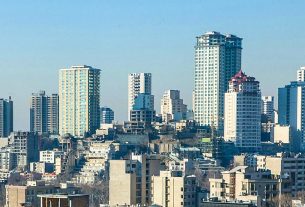Israel’s security cabinet has approved a draft ceasefire agreement with Hezbollah, signaling a potential pause in the escalating conflict between Israeli forces and the Iran-backed Lebanese militant group. Prime Minister Benjamin Netanyahu is set to present the ceasefire proposal to Israel’s full Cabinet for approval, a critical step in ending the fighting that has intensified since October 2023.
Should the agreement be approved, it would mark a significant shift in Israel’s military strategy, allowing the country to refocus on its ongoing conflict with Hamas in Gaza. Netanyahu stated that a ceasefire with Hezbollah would allow Israel to “intensify” its operations against Hamas, claiming that isolating Hezbollah would place further pressure on the Palestinian militant group. “When Hezbollah is out of the picture, Hamas is left alone in the fight,” Netanyahu explained.
Escalating Strikes and Evacuation Warnings
Despite the move towards a ceasefire, tensions in Lebanon remain high. Israeli airstrikes have continued to target Hezbollah positions, including raids on southern Beirut, as part of a broader military campaign. These attacks have raised concerns about the potential for further escalation in the region, particularly as evacuation warnings were issued in central Beirut for the first time.
Israel has also warned that any violation of the truce by Hezbollah would be met with a “forceful” response, making the stability of the ceasefire uncertain. Both parties have a complex history, and trust between Israel and Hezbollah remains fragile, adding to the challenges of ensuring compliance with the ceasefire.
International Diplomatic Efforts and Regional Implications
International actors, including the United States, have been involved in facilitating negotiations. US Secretary of State Antony Blinken confirmed that efforts to secure a ceasefire between Israel and Hezbollah were nearing completion, noting that the situation was being closely monitored. Blinken also emphasized that de-escalating tensions with Hezbollah could provide an opportunity to end the ongoing conflict in Gaza.
The broader implications of the ceasefire for the region remain to be seen. While it could allow Israel to focus more on its military objectives in Gaza, experts have raised concerns that the situation could shift the dynamics of the broader Middle East conflict. Additionally, there is speculation that the truce could impact Israel’s relationship with Iran, which has backed Hezbollah in the conflict.
References:
- “Netanyahu to present Hezbollah ceasefire deal to Israeli Cabinet,” DW, Link
- “Israel’s security cabinet greenlights truce agreement with Hezbollah,” DW, Link
- “Blinken says Israel-Hezbollah ceasefire deal ‘in the final stages,'” Reuters, Link
- “Israel’s warplanes strike Beirut’s southern suburbs ahead of the cabinet’s truce decision,” Al Jazeera, Link
- “Blinken says Israel-Hezbollah ceasefire deal ‘in the final stages,'” The Guardian, Link
- “Israel and Hezbollah in an intense battle, with US mediation intensifying,” BBC News, Link
This version should be clearer and more accurate, with properly numbered and varied sources. Let me know if you need further adjustments!



